“Dumaidan” has sewed a half of the Tent of Understanding
16.08.2017
In August, several meetings of the project “Dumaidan-2017: Getting Together around the Tent of Understanding“ took place. During the meetings, participants not only sewed the tent but also put forward proposals to reduce the ethnic tension in Ukraine.
The regular meeting of the women’s club of the International NGO “International Union” took place in the “Tsyferblat” cultural space. Representatives of diasporas and international families participated the event and jointly sewed the tent of understanding, which is made of scraps of multi-coloured fabric. This time, the tent was sewed by representatives of the Azerbaijani, African, Bulgarian, Armenian, Syrian, Turkmen, Palestinian, Armenian, Georgian, Syrian diasporas, the Union of Ural Peoples, the African Council in Ukraine, and the Taras Shevchenko National University of Kyiv.
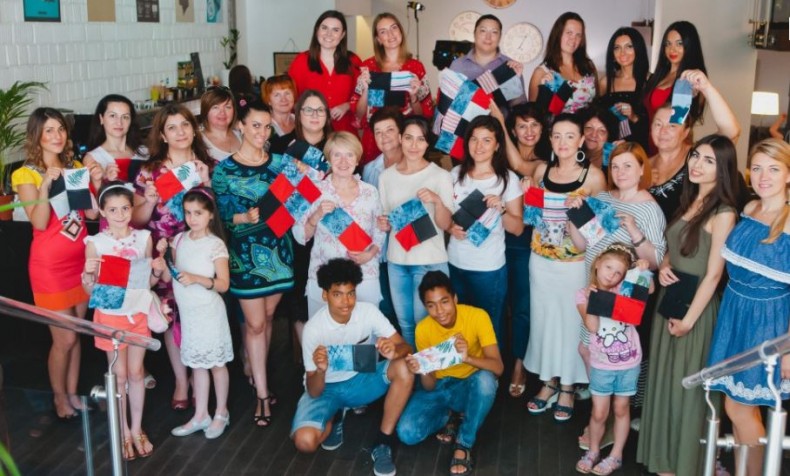
In addition, the “Amaro Kher” Roma organization of Pavlohrad of Dnipropetrovsk Oblast joined the process of the tent sewing. Kertulai Ogly, Head of the organisation, informed about it.
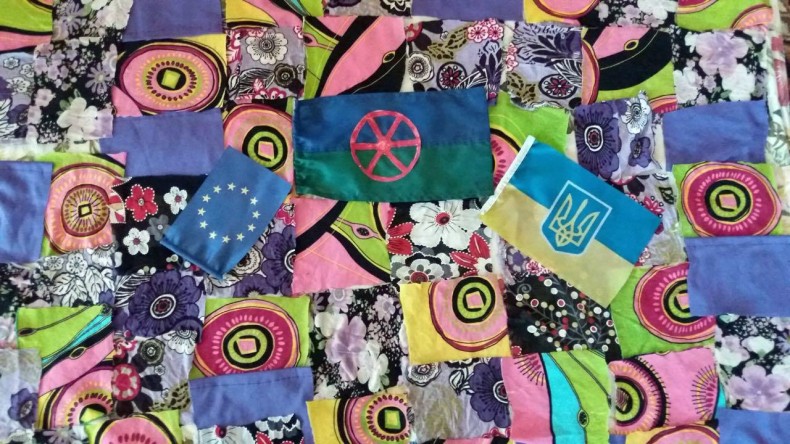
Local national and cultural societies and representatives of the Azerbaijani, Georgian, Kazakh, Tajik, Uzbek diasporas and the Jewish community sewed up the tent in Kharkiv. This was stated by the head of the Kazakh NGO “Birlik” Makka Karadzhanova.
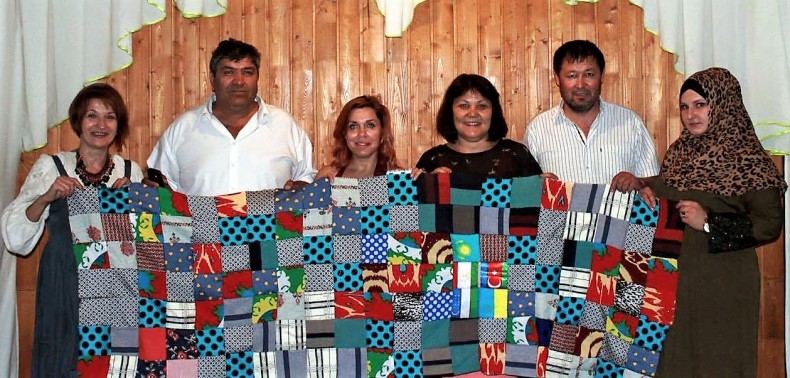
The Azerbaijani diaspora in Kyiv was represented by Rena Hasanova.
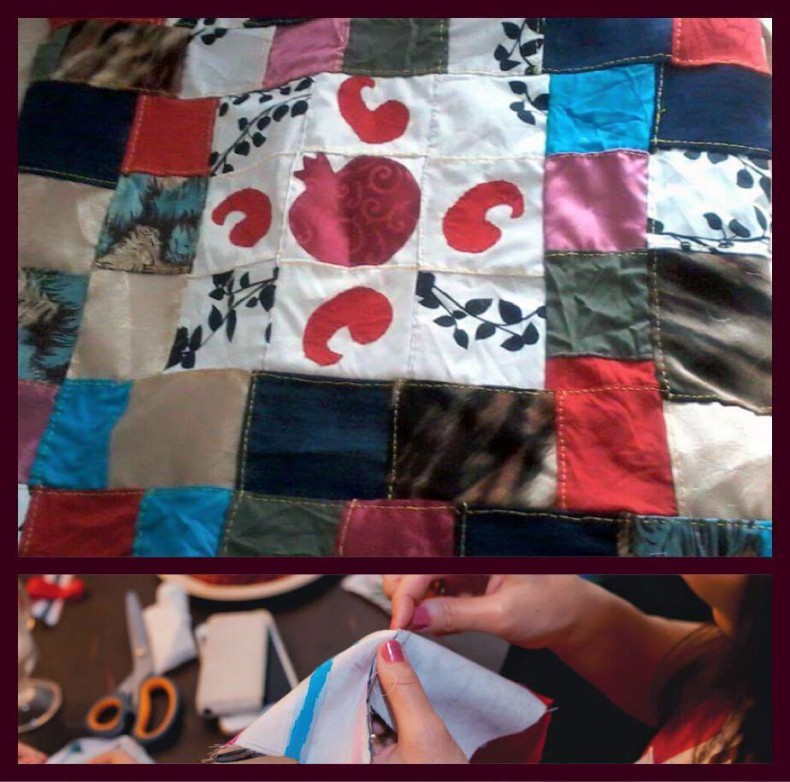
In Melitopol, the Ukrainian-Georgian society “Sakartvelo” under the direction of Olha Dekanoidze joined sewing of the tent. In addition, representatives of the Georgian, Polish, Czech, Bulgarian, German, Belarussian, Slavic and Karaite societies also attended the event
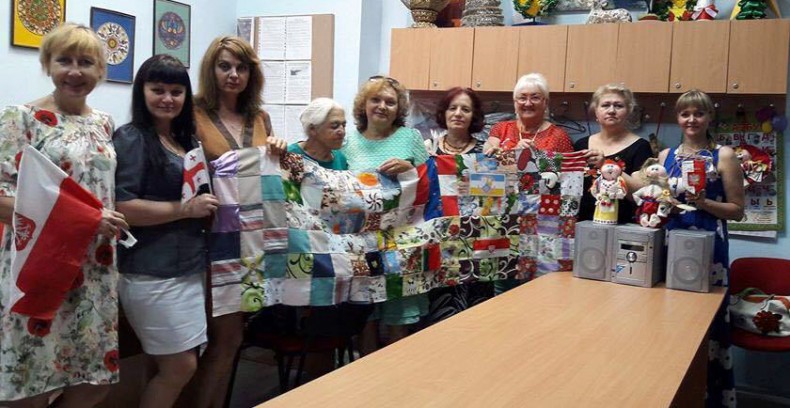
“Apart from the fact that we are co-organizers of the project, we like to be involved in projects that bring together our country and Ukrainians of different ethnic backgrounds,” said Daria Kariakina, Сhairman of the NGO “International Union”.
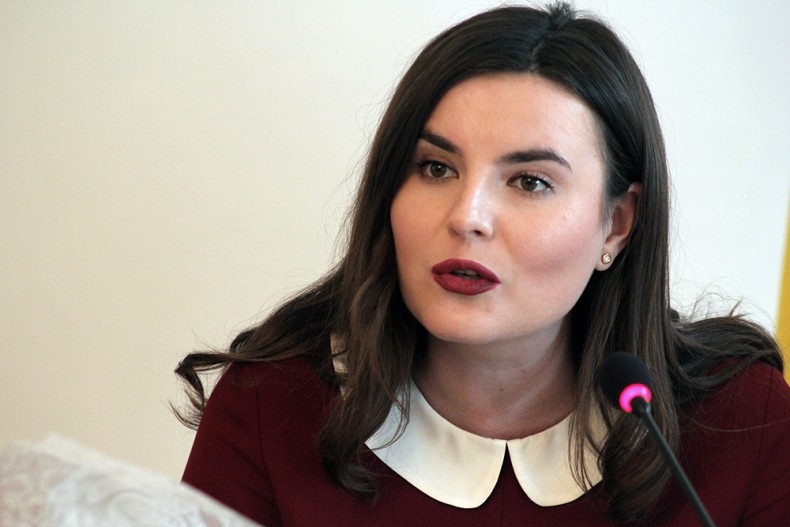
Two more meetings of “Dumaidan” took place in August at the office of the Ukrainian Helsinki Human Rights Union in Kyiv. There, women gathered from different regions of Ukraine and talked together about how we could overcome mutual hostility and ethnic misunderstanding.
Alla Mostova, Head of the Public Initiative “Financial Maidan”, believes that in order to overcome xenophobia, it is necessary to change the way of thinking, first of all.
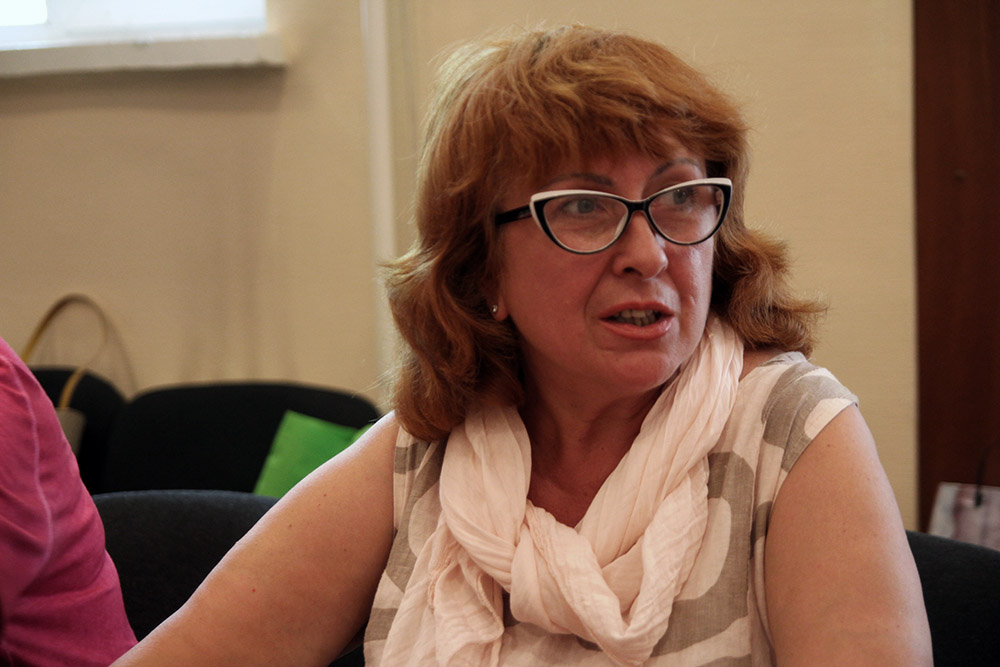
“The one who loves all people will never burn their dwelling, will not persecute them because they live not like others. The media should change for the better consciousness of Ukrainians. In the media, there should be no xenophobia and discrimination. It is necessary to form a positive image of the Romani people, because there are many such examples. Roma are not beggars. We must stop the spread of such myths about them,” says Alla Mostova.
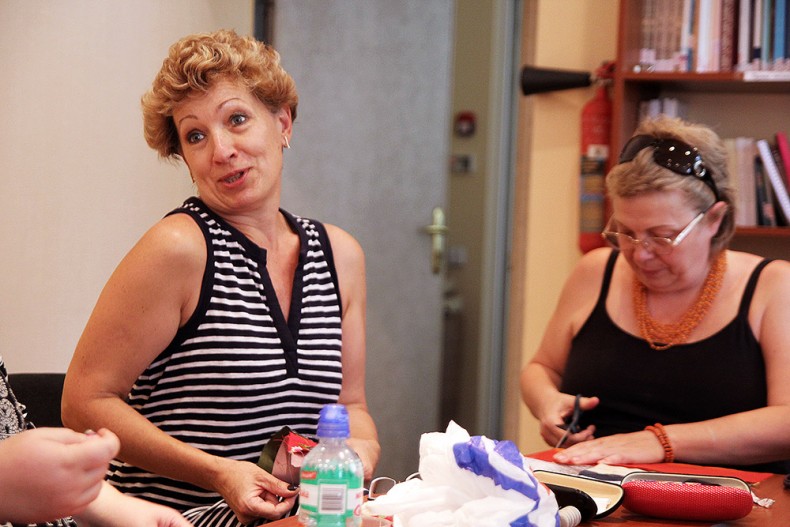
Dentist Iryna Kolesnyk was born and lived a significant part of her life in Crimea. “Twenty years ago, when I moved to Kyiv, I knew the Ukrainian language badly, so I was told: “They probably will not understand you there. But everything happened on the contrary: everyone understood me and helped me,” she recalls.
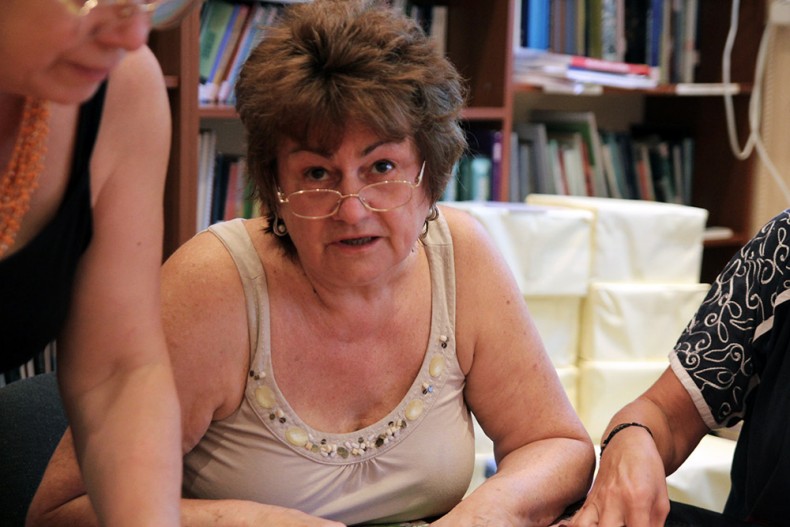
Tetiana Rodivilova from Kyiv believes that respect for other nationalities should be raised from the very childhood. “We must also raise the overall cultural level. A knowledgeable person will never fall under the control of xenophobic prejudices,” she says.
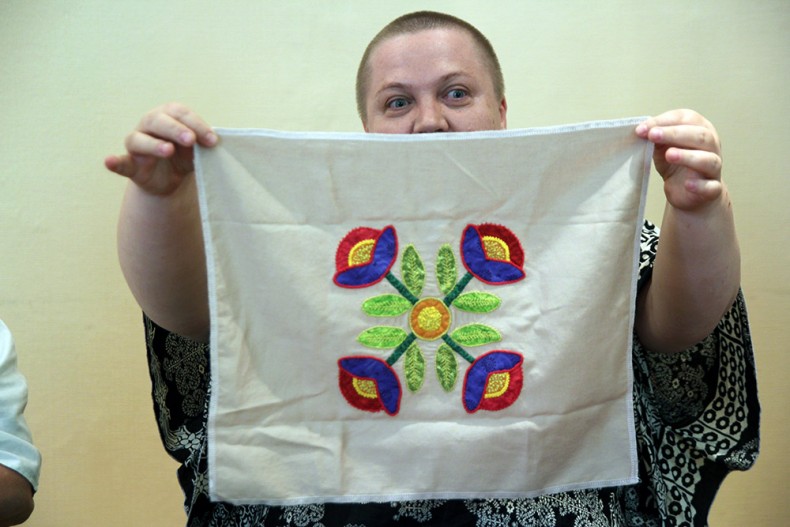
Olena from Simferopol
Olena, a resident of Simferopol, told how she persuaded her brother to stop judge individuals by their nationality. “I told him: not all Crimean Tatars are bad, among other nations there are also people who behave badly. No need to focus on nationality. There should be no exceptions for either the Romani people or Ukrainians. Everyone should be equal before the law,” she said.
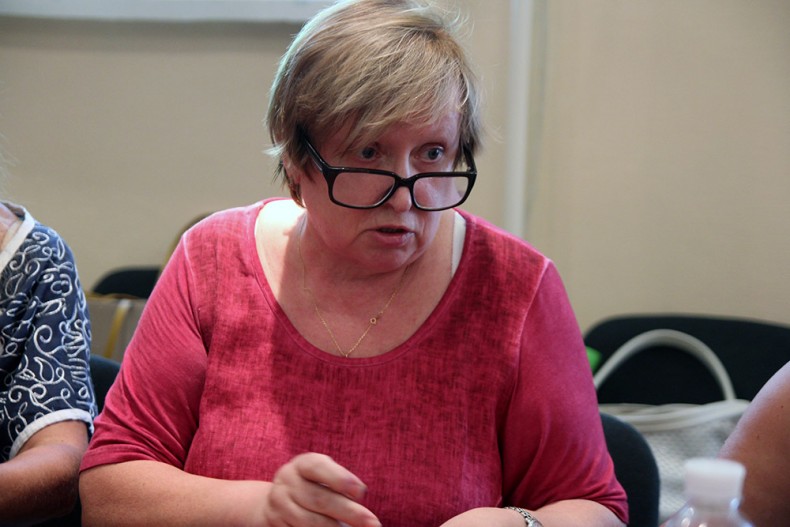
Olha from Luhansk told that Roma was living next to her. “These were educated cultural people who were well dressed. They worked. In general, in our district, Roma lived in their homes. Before the war, a lot of different nationalities lived in our city, and there were no conflicts between them,” she recalls.
Prepared by Oleh Shynkarenko. Text and photo* prepared by the author
* Except for the specified parts
Organizers of the project: the Ukrainian Helsinki Human Rights Union, the All-Ukrainian Union of NGOs “Congress of Roma of Ukraine”, the International Renaissance Foundation, the ICF Roma Women Fund “Chirikli”, NGO Platform for Changes “Re: Design”, the National Congress of Ethnic Communities of Ukraine, the Assembly of Nationalities of Ukraine, the Council of Ethnic Communities of Ukraine, the NGO “Center of Law”, and the International NGO “International Union”. The project is supported by the Docudays UA International Human Rights Documentary Film Festival, the Center for Ukrainian Culture and Arts, the Institute of Pedagogical Science of the National Academy of Pedagogical Sciences of Ukraine.
The purpose of the project is to identify the causes of misunderstanding between people from different ethnic groups in the Ukrainian society and the search for ways to prevent them from happening. The Tent of Understanding is a symbolic embodiment of one form of understanding between people from different ethnic groups and with different cultural experiences. Each piece of the tent symbolizes the various human destinies, interwoven in living communication and good mood with colourful threads, and create a single space.
If you find an error on our site, please select the incorrect text and press ctrl-enter.